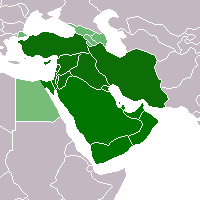| UN Security Council Resolution 234 | ||
|---|---|---|
 Map of the Near East region | ||
| Date | June 7 1967 | |
| Meeting no. | 1350 | |
| Subject | The situation in the Middle East | |
Voting summary |
| |
| Result | Adopted | |
| Security Council composition | ||
Permanent members | ||
Non-permanent members | ||
| ||
United Nations Security Council Resolution 234 was adopted unanimously by the United Nations Security Council on June 7, 1967. The Council demanded the immediate discontinuation of all military activity in the Near East by 20:00 GMT on June 7, 1967.
Contents
The meeting was called by the Soviet Union. Jordan, Israel, the United Arab Republic also accepted the ceasefire solution, on the condition of reciprocity. [1]